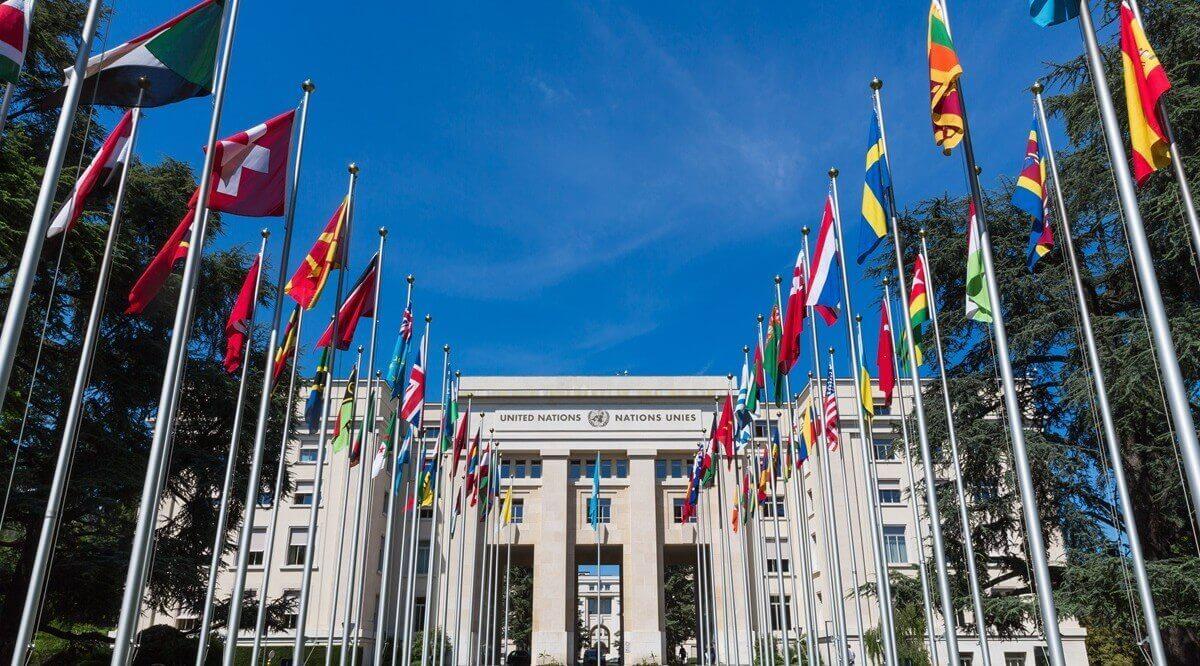Africa-Press – Ethiopia. September 15, 2025 2 minutes read Addis Abeba— Forty-two countries issued a joint statement to the United Nations expressing concern over the human rights situation in Ethiopia, citing restrictions on fundamental freedoms less than a year before the 2026 elections.
“We remain concerned about the challenging human rights situation in Ethiopia, including constraints on the rights to freedom of expression, peaceful assembly, and association,” the statement released last week said. It added, “We regret the closure of civic space in Ethiopia, including recent intimidation and suspension of civil society organizations.” The countries also noted concern about intimidation of independent media and journalists, calling for transparent investigations into such incidents.
The signatories said they “continue to be alarmed by the high number of human rights violations and abuses by both state and non-state actors,” as documented by the Office of the High Commissioner for Human Rights in its 2024 report. They further expressed grave concern over “the significant increase in grave violations against children, including the killing and maiming of children, sexual violence against children, and the abduction of children,” citing the 2025 report of the UN Secretary-General on Children and Armed Conflict.
“We call on the Government of Ethiopia and all other actors to take concrete action to end ongoing human rights violations and abuses in areas of conflict, including in Amhara, Oromia, and Tigray,” the statement continued. It urged an immediate end to “killings and injuries of civilians, torture, ill-treatment, enforced disappearances, arbitrary arrests and detentions, and attacks on civic infrastructure, as well as extreme levels of sexual and gender-based violence by different actors.” The countries pressed authorities to uphold human rights nationwide, ensure justice and accountability, and adopt “a victim- and survivor-centered approach.”
The joint statement also expressed concern over the lack of progress in Ethiopia’s transitional justice process. It recalled that implementing a credible transitional justice and accountability framework is “not only crucial for the victims and survivors but also for ensuring lasting peace and reconciliation in the country.”
The countries further urged the Ethiopian government “to constructively cooperate with the UN and other protection actors and respect their independence,” while calling on all parties to refrain from further violations and abuses and to engage in peaceful dialogue to restore stability.
Amnesty International and Human Rights Watch have both raised alarm over proposed amendments to Ethiopia’s Civil Society Organizations (CSO) Proclamation. Amnesty, in a statement on 18 August, warned that the changes would reverse recent legal reforms and amount to a “total closure of civic space,” accusing the Ministry of Justice of conducting the process “in strict secrecy” with consultations limited to government-aligned groups. Human Rights Watch similarly urged lawmakers to reject the draft, cautioning that it would grant the federal government sweeping powers to restrict nongovernmental organizations. Both rights groups called on Ethiopia’s international partners to press the government to halt the amendments and stressed that any reforms should comply with international human rights standards.
In its 18 July 2025 editorial, Addis Standard described the proposed amendments to the Civil Society Organizations (CSO) Proclamation as more than bureaucratic reform, calling them “a direct assault on freedoms of association, expression, and accountability.” The editorial warned that by granting the state sweeping control over funding, leadership, and activities of CSOs, the draft law revives the spirit of the repressive 2009 regime that silenced civic voices for nearly a decade. It further highlighted that vague “national security” clauses embedded in the draft could be used to shut down dissent and erode the remaining civic space, hallmarks of absolute authoritarian control. The editorial concluded that if enacted, the law would dismantle the hard-won gains of the 2019 CSO Proclamation.
For More News And Analysis About Ethiopia Follow Africa-Press






